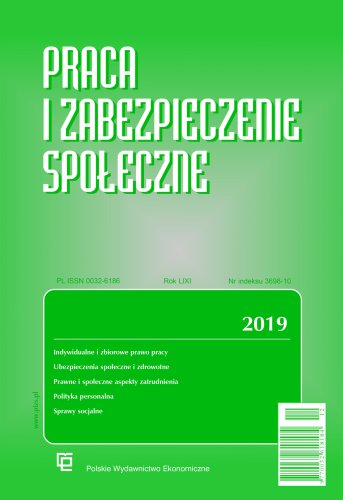Labour and Social Security Journal 11/2022
ISSN: 0032-6186
Pages: 64
Publication date: 2022
Place publication: Warszawa
Binding: paperback
Format: A4
Publication date: 2022
Place publication: Warszawa
Binding: paperback
Format: A4
DOI: 10.33226/0032-6186.2022.11.2
JEL: K31
DOI: 10.33226/0032-6186.2022.11.3
JEL: I38, J83, K31
DOI: 10.33226/0032-6186.2022.11.4
JEL: J71, J83
DOI: 10.33226/0032-6186.2022.11.5
Luiz Otávio Linhares Renault, Dr Marta Zbucka-Gargas, Prof. Cláudio Iannotti da Rocha, Guilherme Alves Jevaux
JEL: K31
DOI: 10.33226/0032-6186.2022.11.6
JEL: K31
DOI: 10.33226/0032-6186.2022.11.7
JEL: J31, J32
DOI: 10.33226/0032-6186.2022.11.8
JEL: K31
DOI: 10.33226/0032-6186.2022.11.9
JEL: H55, K31
| Odbiór osobisty | 0 € |
| Inpost Paczkomaty | 4 € |
| Kurier Inpost | 4 € |
| Kurier FedEX | 4 € |
| Free delivery in Reader's Club | from 47 € |

